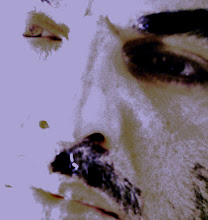Here is the Cavafy poem that inspires this blog:
Ποσειδωνιάται
Ποσειδωνιάταις τοις εν τω Tυρρηνικώ κόλπω το μεν εξ αρχής Έλλησιν ούσιν εκβαρβαρώσθαι Tυρρηνοίς ή Pωμαίοις γεγονόσι και την τε φωνήν μεταβεβληκέναι, τα τε πολλά των επιτηδευμάτων, άγειν δε μιαν τινα αυτούς των εορτών των Eλλήνων έτι και νυν, εν η συνιόντες αναμιμνήσκονται των αρχαίων όνομάτων τε και νομίμων, απολοφυράμενοι προς αλλήλους και δακρύσαντες απέρχονται.
ΑΘΗΝΑΙΟΣ
Την γλώσσα την ελληνική οι Ποσειδωνιάται
εξέχασαν τόσους αιώνας ανακατευμένοι
με Τυρρηνούς, και με Λατίνους, κι άλλους ξένους.
Το μόνο που τους έμενε προγονικό
ήταν μια ελληνική γιορτή, με τελετές ωραίες,
με λύρες και με αυλούς, με αγώνας και στεφάνους.
Κ' είχαν συνήθειο προς το τέλος της γιορτής
τα παλαιά τους έθιμα να διηγούνται,
και τα ελληνικά ονόματα να ξαναλένε,
που μόλις πια τα καταλάμβαναν ολίγοι.
Και πάντα μελαγχολικά τελείων' η γιορτή τους.
Γιατί θυμούνταν που κι αυτοί ήσαν Έλληνες―
Ιταλιώται έναν καιρό κι αυτοί·
και τώρα πώς εξέπεσαν, πώς έγιναν,
να ζουν και να ομιλούν βαρβαρικά,
βγαλμένοι ―ω συμφορά!― απ' τον Ελληνισμό.
Poseidonians
[We behave like] the Poseidonians in the TyrrhenianGulf, who although of Greek origin, became barbarized as Tyrrhenians or Romans and changed their speech and the customs of their ancestors. But they observe one Greek festival even to this day; during this they gather together and call up from memory their ancient names and customs, and then, lamenting loudly to each other and weeping, they go away.
Athenaios, Deipnosophistai, Book 14, 31A (632)
The Poseidonians forgot the Greek language
after so many centuries of mingling
with Tyrrhenians, Latins, and other foreigners.
The only thing surviving from their ancestors
was a Greek festival, with beautiful rites,
with lyres and flutes, contests and garlands.
And it was their habit towards the festival's end
to tell each other about their ancient customs
and once again to speak Greek names
hardly any of them still recognized.
And so their festival always had a melancholy ending
because they remembered that they too were Greeks,
they too once upon a time were citizens of Magna Graecia.
But how they'd fallen now, how they'd changed,
living and speaking like barbarians,
cut off so disastrously from the Greek way of life.
Constantine P. Cavafy
Τα Υπ' Όψιν της 17 Μαϊου 2020
3 years ago
